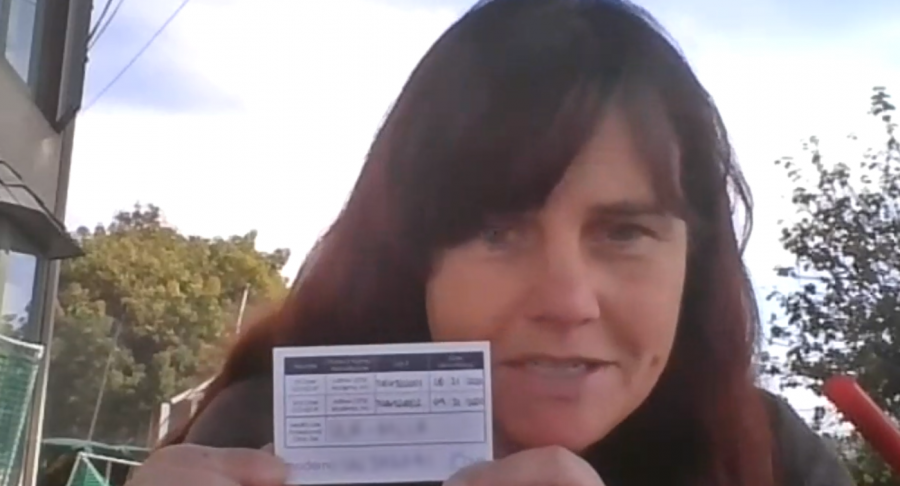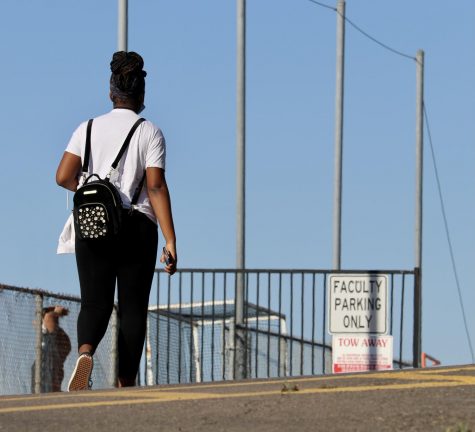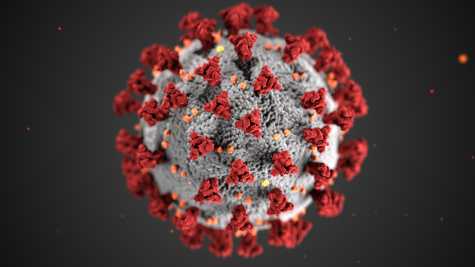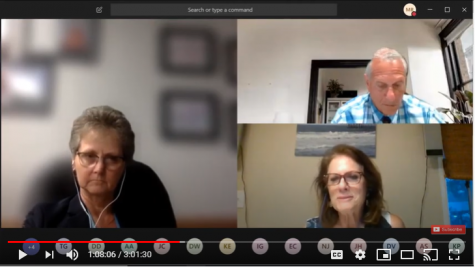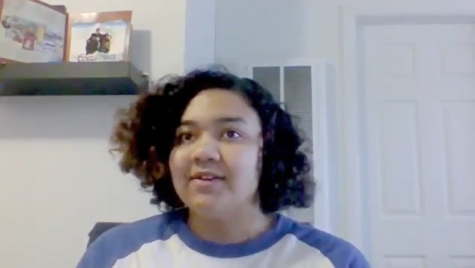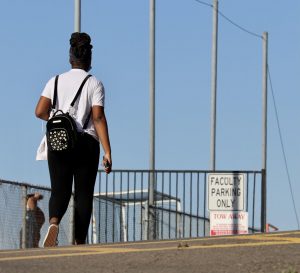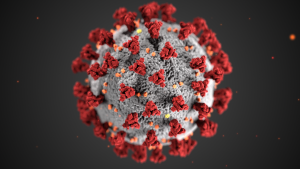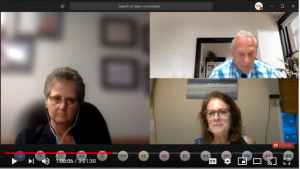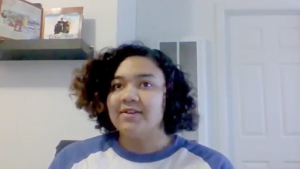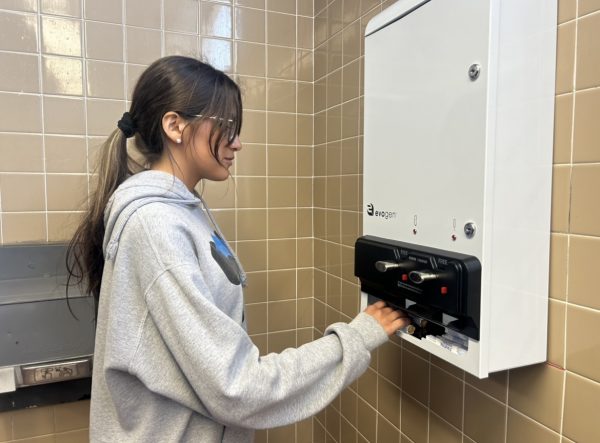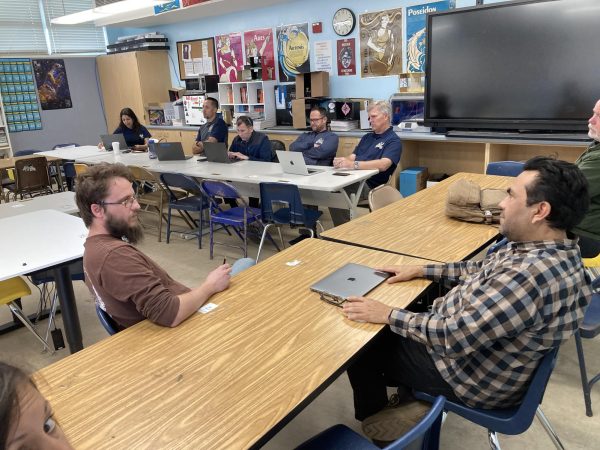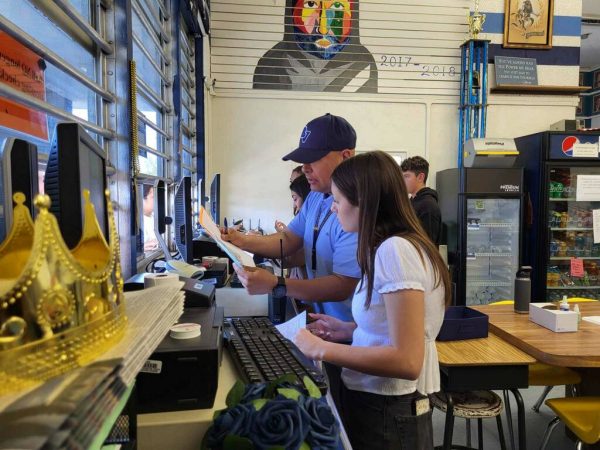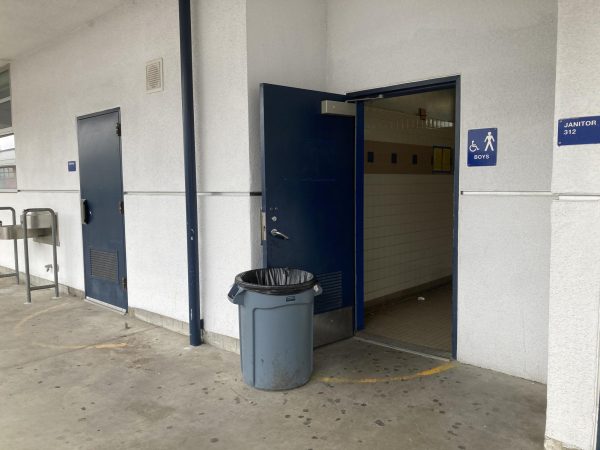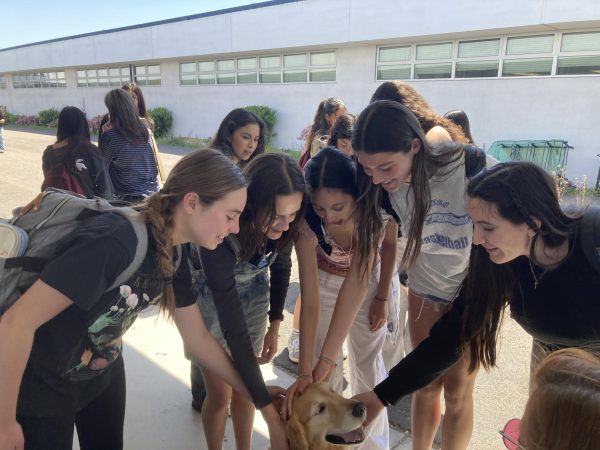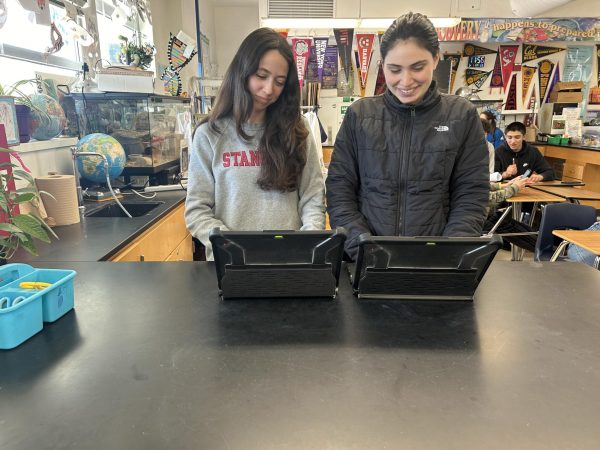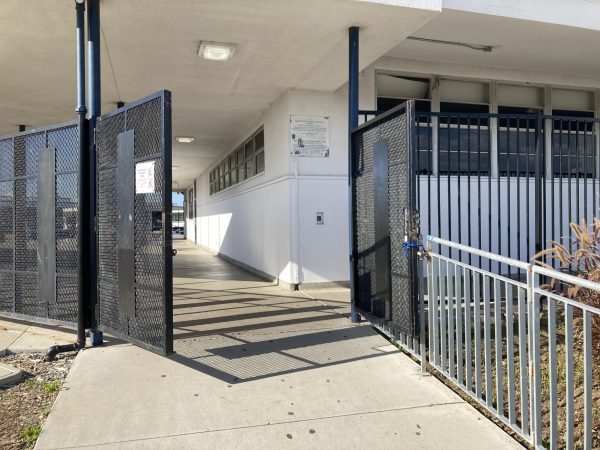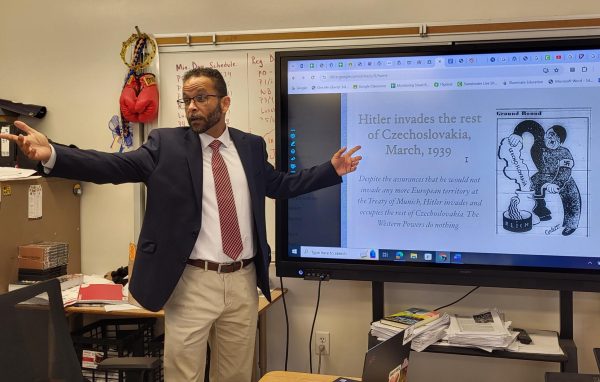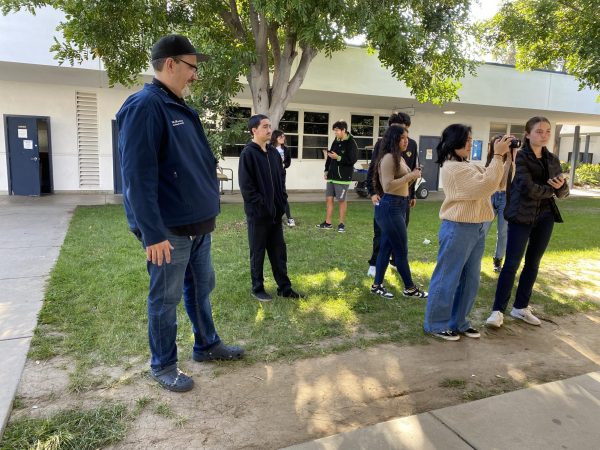BVH community members receive COVID-19 vaccine
BVH Advance Placement (AP) Environmental Science teacher Adrienne Marriott holds up her verification of vaccination. Marriott was a part of a double blind Moderna vaccine trial where participants were given injections without knowledge of whether it was the COVID-19 vaccine or a placebo.
As of Jan. 23, San Diego County has begun vaccinating individuals under Phase 1 of the COVID-19 vaccination plan. This phase allows healthcare workers and people over the age of 65 to be vaccinated. Although COVID-19 vaccines are not available for the general population over 16 years of age until Phase 2, several Bonita Vista High (BVH) students and teachers have had the chance to receive it.
BVH senior Natalee Borum, for instance, was able to receive the COVID-19 vaccine on Jan. 30 as she has been volunteering at Sharp Chula Vista Medical Hospital since her sophomore year. According to Borum, Sharp volunteers have not been able to volunteer since the start of the pandemic. Now that the vaccine is available to medical workers, Sharp notified volunteers like Borum to schedule a date to receive the vaccine if they wanted to start volunteering again.
“The plan is for them to start opening up more positions to volunteer [and] get the hospital running because the volunteers do a lot of [important] tasks at the hospital and it helps with the overall function of the hospital,” Borum said. “I’m hoping that after the second dose is given, I’ll be able to return soon, and if not, I’m just going to keep on waiting until I can.”
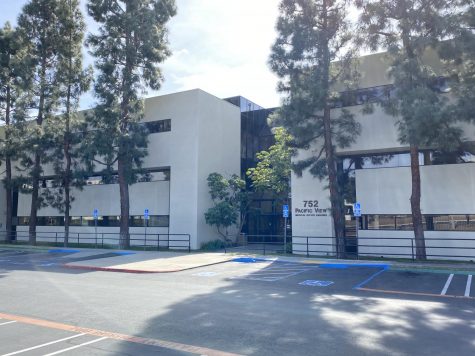
Borum received the Pfizer vaccine which requires two injections, three weeks apart from each other. According to Borum, she received the first shot at an office building across from the Sharp hospital repurposed to have yearly tests for employees and volunteers for all sorts of check-ups. Those receiving it had to wait outside in a line to follow minimum occupancy rules. Two people would enter the building at a time where they were greeted by two nurses and four volunteers in order to get the vaccine and ask any questions. Once they were given the shot, they were guided to a different room to wait 15 minutes before leaving to monitor any possible side effects. Borum later received her second vaccination on Feb. 20.
In late summer of 2020, Advance Placement (AP) Environmental Science teacher Adrienne Marriott became a part of the Moderna vaccine study for COVID-19 where she got the chance to be one of the first to receive the vaccine. The study consisted of receiving two injections, one on Aug. 21 and another on Sept. 21, 2020. Although she received the vaccination, Marriott did not know whether it was the actual vaccine or a placebo until February 2021 since it was a double-blind study, where experimenters and participants do not know who is receiving a certain injection. However, it was later confirmed that she did in fact receive the real Moderna vaccine and now she continues to answer questions as an addition to the research.
“[In the study] you have an app on your phone and it would ask you some questions about symptoms and side effects. Then there’s a monthly phone call where they checked me and then I continue to be in the study for at least another year because we still don’t know if the vaccine will confer lifelong immunity or if my blood no longer has antibodies after some point,” Marriott said. “ One of the questions they always asked is if I know or have been around someone with COVID because a question that we still have is, ‘If I’m vaccinated, could I still spread the disease to others?’ ”
In light of the recent distribution of these vaccines, conversations have sparked with the current unknowns of the potential side effects. According to a poll conducted by the Crusader on Feb. 8 of 438 BVH students, 10.8 percent were afraid of receiving the vaccine. Although there is fear around the COVID-19 vaccine, Borum expresses that she wasn’t fearful of receiving it as she is “a firm believer that science works and trusts all the scientists that have researched it.” Moreover, Marriott agrees and believes the vaccine has gone through enough testing, although she did experience some minor side effects.
“The only side effect I had was after the first shot, when my arm was sore for several days. Interestingly, after the second shot, my arm actually swelled up a little bit [and] it looked like I had muscles. I could tell that my body was having an immune response, but that was it,” Marriott said. “But [it was] certainly worth it.”
Like Borum, BVH junior Noe Contreras was able to receive the Pfizer vaccine this January. Contreras indicates that he was able to receive the vaccine since his parents take care of disabled individuals, therefore it was necessary for him to receive the vaccine to ensure household members’ safety. In Contreras’ situation, nurses were able to go to his household, check everyone’s medical information and give the vaccine to his household members.
“I was afraid at first because I thought they were going to put a chip in my arm but then I realized that it was not true because [these medical professionals are] trying to save lives. Also I saw so many of my family members die because of COVID and that changed my mind,” Contreras said.
Marriott feels that her experience as part of the COVID vaccine trials has proven to her and others that the vaccine is nothing to be afraid of, however Marriott understands that there will always be people that don’t trust the vaccine. For those who are fearful, she suggests “to consult a reliable source of information like the Centers for Disease Control or Dr. Fauci.”
“I think that new things can inspire fear in people,” Marriott said. “One of the things I’ve heard people say [is] that it’s gonna change your DNA. It can’t do that. The vaccines are made of mRNA and we cover this in ninth grade biology that the flow of information is from DNA to RNA, not the other way around. Try to keep an open mind and talk with your own physician or your medical group about it.”
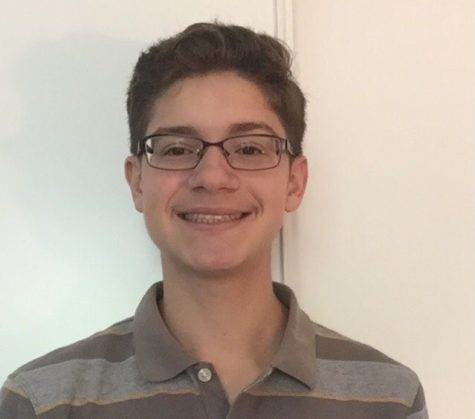
I am a junior at Bonita Vista High school, and this is my first year as part of The Crusader. I hope to develop many helpful skills from Newspaper...

